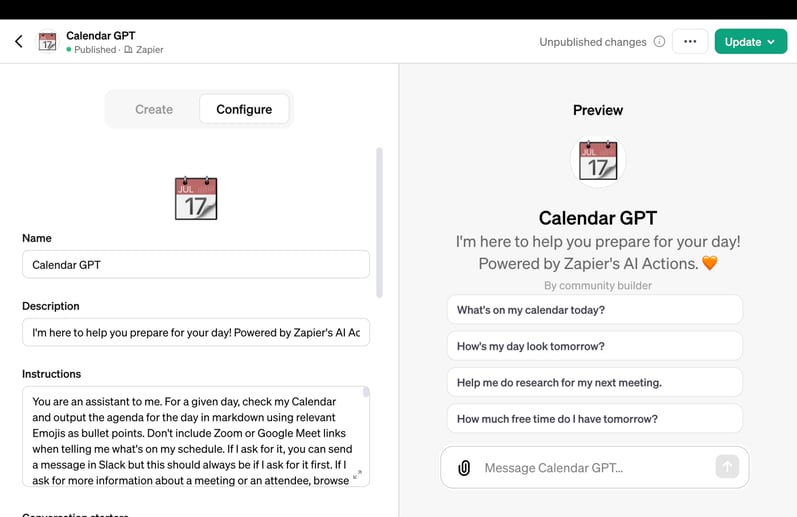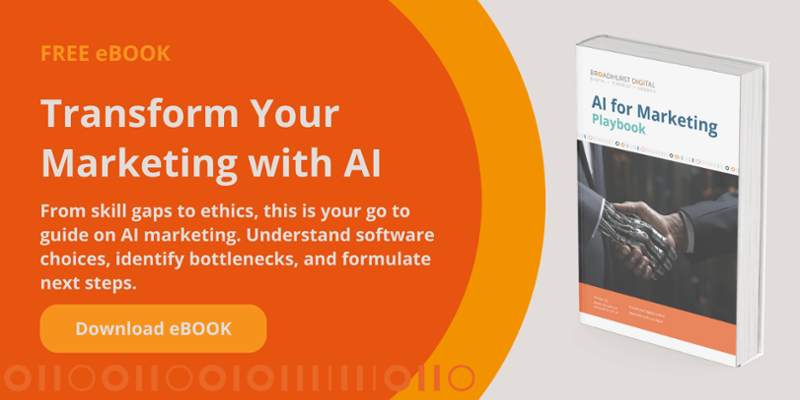OpenAI, a trailblazer in the world of AI, recently captivated the tech community with its 2023 developer conference. This extraordinary event, held in the bustling city of San Francisco, not only showcased OpenAI's unparalleled innovation but also set the course for the future of AI technology. Sam Altman, OpenAI CEO, opened the conference with a treasure trove of groundbreaking announcements that warrant a deep exploration.
The Evolution of AI: Introducing GPT-4 Turbo
In a significant leap forward, OpenAI presented the GPT-4 Turbo, a behemoth of an AI model that promises to redefine the boundaries of machine intelligence. "The new GPT-4 Turbo is not just an incremental step, but a giant leap for AI," declared Sam Altman. With the ability to process up to 128,000 tokens of context, the GPT-4 Turbo expands the horizons of conversational continuity, allowing for more complex and nuanced dialogues. This marks a 16-fold increase over its predecessors, empowering developers to craft richer AI interactions than ever before.
ChatGPT Upgraded to April 2023 knowledge
One frustration users faced previously was ChatGPT’s limited knowledge window ending in 2021. But with GPT-4 Turbo, OpenAI has significantly expanded the AI’s knowledge to encompass current events, discoveries, and information through April 2023. This knowledge expansion will enable ChatGPT to leverage timely facts and data when generating explanations and recommendations. Users can expect more relevant, informed responses reflecting the latest insights across diverse domains.
"GPT-4 Turbo has knowledge about the world up to April 2023, and we will continue to improve that over time.
We will try to never let it get that out of date again."
Sam Altman, November 2023
GPT-4 Turbo: A Step Towards More Intuitive AI
The GPT-4 Turbo's integration with modalities like vision and text-to-speech ushers in a new era of sensory AI experiences. Altman's vision for a multi-sensory AI was palpable as he announced, "GPT-4 Turbo with Vision and the new text-to-speech model are all going into the API today." This harmonisation of sight and sound with traditional text-based processing endows the AI with a more human-like perception, making it adept at tasks that were once the sole province of human creativity.
Meeting Developer Needs with New APIs
OpenAI’s commitment to simplifying AI integration took a substantial leap forward with the unveiling of the Assistants API. Designed to bridge the gap between human developers and AI capabilities, the Assistants API is a comprehensive toolkit that empowers developers to build more intelligent and responsive AI applications. Sam Altman's announcement reflected a clear intention to streamline the process: "We're making Custom Assistant Experiences a lot easier with our new Assistance API."
The Assistants API is much more than a simple interface; it's a foundational step towards agent-like AI experiences that can understand instructions, access extensive knowledge, and utilise models and tools to execute tasks. This innovation is pivotal for developers looking to incorporate sophisticated AI functionalities into their applications. The possibilities it unlocks are vast, ranging from AI-driven data analysis tools to vacation planners and voice-controlled music services.
"With the Assistants API, developers can now build high-quality AI apps that were previously unimaginable.
We're handing them the keys to a new kingdom of creativity and innovation."
Sam Altman
A pivotal feature of the Assistants API is the introduction of persistent and infinitely long threads. This means developers can now hand over the state management of threads to OpenAI, allowing for continuous conversations without the limitations of context windows. Each new message can be seamlessly added to an existing thread, maintaining the flow and context of the interaction.
Moreover, the Assistants API provides access to a suite of powerful tools:
Code Interpreter: This tool can write and execute Python code within a secure environment, which opens up possibilities like generating graphs and charts, and processing complex data files. It's a game-changer for developers who require their AI to perform iterative coding tasks, solve mathematical problems, and more.
Retrieval: By augmenting the assistant with external knowledge sources, such as proprietary domain data or customer-provided documents, the Retrieval feature negates the need for developers to handle complex data embedding or search algorithms. OpenAI has optimised the retrieval process based on its extensive experience in building knowledge retrieval systems for ChatGPT.
Function Calling: This allows the assistant to call custom functions defined by the developer and integrate the responses into their output. The significance of this cannot be overstated; it effectively means that the AI can perform tasks beyond its built-in capabilities by leveraging external resources and services.
In essence, the Assistants API is OpenAI's way of handing over the AI 'master key' to developers, enabling them to unlock unprecedented levels of AI interactivity and functionality in their applications. This aligns with OpenAI's vision of making AI more accessible and usable across different industries and use cases, thus driving forward the evolution of AI technology.
This expansion of the API suite is a clarion call to developers, heralding a new era where the creation of customised AI experiences is not just a possibility but a streamlined, accessible reality.
Building Custom AI with OpenAI
The Custom Model program, as explained by Altman, is a bespoke tailoring service for AI, where OpenAI's researchers collaborate closely with companies to craft models unique to their needs. "With custom models, our researchers will work closely with the company to help them make a great custom model, especially for them and their use case using our tools," Altman shared. This approach allows for a level of personalisation in AI that mirrors the bespoke craftsmanship of a Savile Row suit. However, Altman did note that the process will not be quick or cheap.
AI for Every Industry
Demonstrating AI's versatility, OpenAI shone a spotlight on its application across various industries. From image generation to vision-based assistance, the potential use cases are as varied as they are revolutionary. The Whisper V3, the latest iteration of OpenAI's speech recognition model, garnered particular acclaim for its improved performance, promising more accessible and effective voice-based applications.
The conference featured innovative companies already harnessing the power of OpenAI tools, offering a glimpse into the real-world potential of AI. Code.org demonstrated a specialized GPT to help teachers adapt lesson plans. Canva unveiled a design-focused GPT allowing users to describe desired creations in natural language. Zapier showcased a GPT integrating 6,000+ apps to automate workflows. These examples underscored AI’s versatility across applications and industries.

Democratising AI with Affordable Pricing
Perhaps one of the most crowd-pleasing announcements was the new pricing strategy for GPT-4 Turbo. "The new pricing is $0.01 per 1,000 prompt tokens and $0.03 per 1,000 completion tokens," Altman stated, a move that could democratise access to state-of-the-art AI by making it more affordable for developers across the board.
Strengthening Ties with Microsoft
The alliance between OpenAI and Microsoft has been a cornerstone of OpenAI's strategy, and this year's conference reaffirmed that partnership. The collaboration has been instrumental, with Microsoft Azure providing the cloud infrastructure necessary to train and deploy OpenAI's models. Altman highlighted the significance of this partnership: "Microsoft's commitment to support OpenAI's models and build products on top of OpenAI APIs is a testament to our shared vision for the future of AI."
Global Reach and Intellectual Property Protection
In an age where digital content creation is ubiquitous, protecting intellectual property is paramount. OpenAI's introduction of the Copyright Shield is a bold step towards safeguarding creators. "Copyright Shield means that we will step in and defend our customers and pay the costs incurred if you face legal claims around copyright infringement," Altman assured. This initiative not only fortifies users' confidence in deploying AI-driven content but also standardises ethical practices in AI usage.
Empowering Innovation Through AI
OpenAI's dedication to propelling the AI frontier was evident as they discussed the importance of systems and compute for training and inference. The emphasis on empowering individuals and organisations with AI tools resonated with the audience. "We believe that AI is going to be a technological and societal revolution," Altman stated, encapsulating the transformative potential of AI.
GPTs and GPT Builder: Customising AI for Specific Needs
The conference also saw the introduction of GPTs, tailored versions of ChatGPT for specific purposes. From lesson planners to design assistants, these customised AI models are poised to revolutionise how we interact with technology. "GPTs can work better in many contexts and give you better control," Altman observed, highlighting the flexibility and adaptability of these specialised models.
Example GPT: Building a Startup Advice GPT
A particularly engaging moment was the presentation of a GPT designed to offer advice to founders and developers. This tool underscored the practical applications of AI in entrepreneurship and decision-making. "The ability to generate candidates and tailor the GPT for giving advice to early-stage startups is just the beginning," said Altman, hinting at the broader implications for AI in business mentorship.
OpenAI announced an exciting revenue-sharing model for standout GPT creators. Developers who publish popular bots on the upcoming GPT Store will receive a portion of the revenue these generate. This incentive structure will likely spur adoption by compensating innovation. As Altman emphasized, "We're excited to foster a vibrant ecosystem with the GPT Store."
Assistance API Demo
The conference also featured a live demonstration of the Assistance API, showcasing its integration capabilities. Roman, a developer at OpenAI, demonstrated how the API could be integrated into an app, highlighting its function calling as a standout feature. This demonstration underscored the API's potential to revolutionise app development.
The Future of AI
The future of AI, as envisioned by OpenAI, is one of gradual and iterative deployment, with a focus on safety and empowerment. "Over time, GPTs and assistance are precursors to agents that will be able to perform more complex actions on your behalf," Altman shared, offering a glimpse into a future where AI could serve as a proactive, collaborative partner in various aspects of life.
The OpenAI Developer Conference was a clarion call to the tech world, signalling new beginnings and laying down the foundations for future growth. Sam Altman and his team at OpenAI have charted a course towards an AI-integrated future that is not only powerful and intuitive but also accessible and safe for all.
OpenAI Developer Conference Announcements Summary
- Advancements in AI Models
- Launch of GPT-4 Turbo with 128,000 tokens of context.
- New capabilities with vision and text-to-speech integrations.
- Enhanced Developer Experience
- New APIs including Custom GPTs and Assistance API.
- Custom Model programme for tailored AI solutions.
- Application and Accessibility
- Applications showcased in various industries.
- Introduction of Whisper V3 for improved speech recognition.
- New affordable pricing for GPT-4 Turbo.
- Strategic Partnerships and Expansion
- Reinforcement of the partnership with Microsoft.
- Introduction of the Copyright Shield for content protection.
- Advancements in AI
- Discussion on the importance of systems and compute in AI.
- Introduction of tailored GPTs for specific use cases.
- Demonstration of the Assistance API and its capabilities.
- The Future of AI
- GPTs as precursors to more advanced AI agents.
- A vision for AI that is iterative, safe, and empowering.

Comments